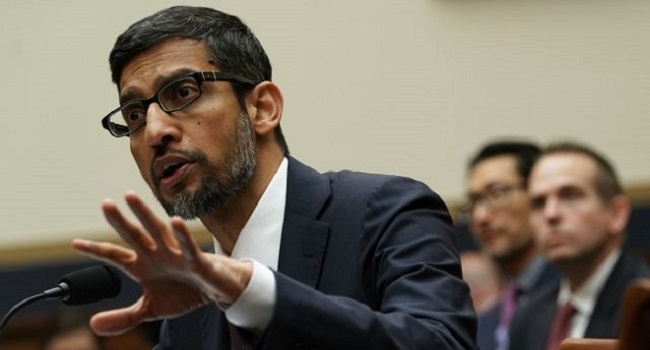Tech
Google seeks end to Oracle billion-dollar copyright case

Alphabet Inc’s Google on Jan 24 asked the US Supreme Court to reverse a ruling that resurrected a billion-dollar copyright case brought by Oracle Corp that dates to 2010.
Google urged the high court to rule its copying of Oracle’s Java programming language to create the Android operating system was permissible under US copyright law.
The move comes after the search engine giants was slapped with a $57 million fine by French regulators for violating GDPR rules that took effect last May by being less than upfront about how user data is collected and used.
Read also: Zuckerberg’s Facebook to face record fine over privacy violations
French data privacy agency CNIL levied the fine, the first against a U.S. company since GDPR took effect last spring, noting that Google; “Essential information, such as the data processing purposes, the data storage periods or the categories of personal data used for the ads personalization, are excessively disseminated across several documents, with buttons and links on which it is required to click to access complementary information.,” CNIL said in a statement. “The relevant information is accessible after several steps only, implying sometimes up to five or six actions. For instance, this is the case when a user wants to have a complete information on his or her data collected for the personalization purposes or for the geo-tracking service,” the statement concluded.
Join the conversation
Support Ripples Nigeria, hold up solutions journalism
Balanced, fearless journalism driven by data comes at huge financial costs.
As a media platform, we hold leadership accountable and will not trade the right to press freedom and free speech for a piece of cake.
If you like what we do, and are ready to uphold solutions journalism, kindly donate to the Ripples Nigeria cause.
Your support would help to ensure that citizens and institutions continue to have free access to credible and reliable information for societal development.






















